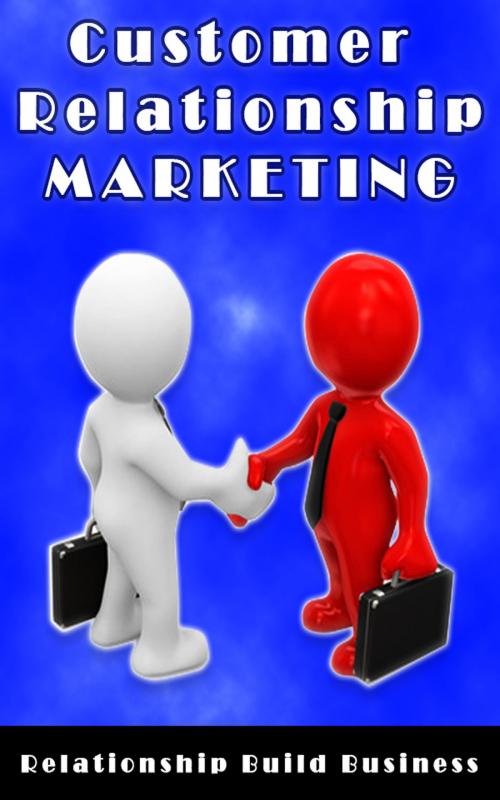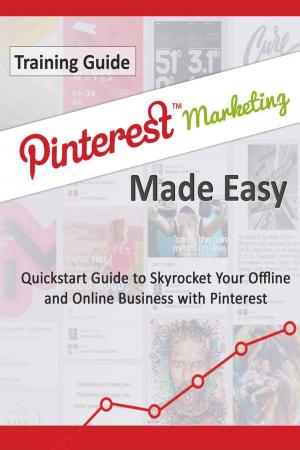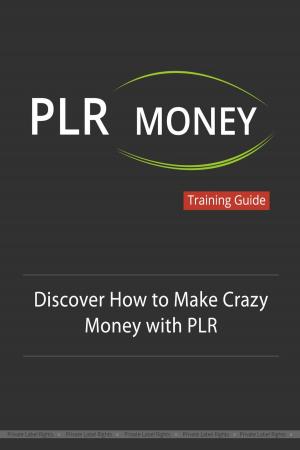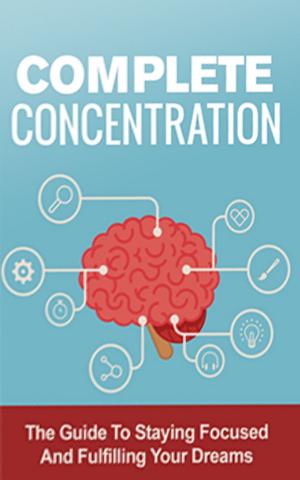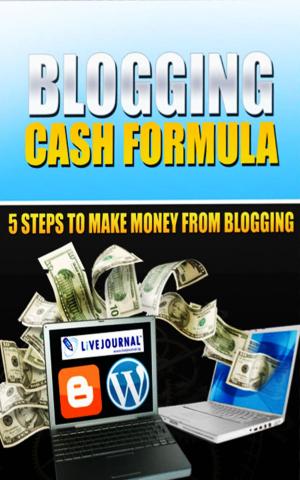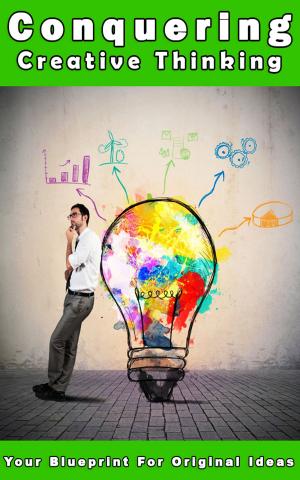| Author: | John Hawkins | ISBN: | 1230003052419 |
| Publisher: | John Hawkins | Publication: | January 29, 2019 |
| Imprint: | Language: | English |
| Author: | John Hawkins |
| ISBN: | 1230003052419 |
| Publisher: | John Hawkins |
| Publication: | January 29, 2019 |
| Imprint: | |
| Language: | English |
Enhance your customer support and truly differentiate yourself from your competition!
There is no question about the impact great customer service has on an organisation. How to understand customers’ needs will give you the tools to make a connection and build a relationship with your customer base. Today we may be providing a service, tomorrow we may be a receiving one; it is the beauty of this that makes good customer service a truly human endeavour.
We see it often – an organisation says they’re customer centric and have a customer strategy to prove it, so why do they provide such a poor customer experience? Looks like a chicken, clucks like a chicken… But it’s not a chicken?! This course will help you understand how your internal processes impact your external service. It gives you tools to determine the factors that create customer value and links your service to outcome. You will also be guided on understanding the modern customer and how their needs have changed over time. That customer experience strategy of yours may just need a little tweaking so that you can truly respond to your customers’ needs.
Amazingly there are almost no official theories, tools or frameworks out there talking about Customer Care. For me it’s one of the most powerful and underestimated marketing, sales and leadership areas. So, I have created a step by step course you can use to come up with original, cost effective and unique ways to delight every customer and have them coming back to you time after time. Imagine if all your customers became repeat clients, and referred you to others many times over? You could fire your whole sales and marketing team!
Customer Relationship Marketing Strategies:
* Attract the right customers for the right reasons
* The most crucial time is the beginning
* In established relationships continually reinforce the decision to buy
* Good customers expect to be rewarded
* The second most crucial time is when the relationship is at risk
* Consider the Customer's View
* All Customers Aren't Equal
* Customer Relationship Marketing Takes Time
* Creating Relationships
Customer Relationship Marketing Priorities that Drive Profitable Growth:
* Focus on Best Customers. Typically a small percentage of your customers contribute the majority of your volume and profit. These are your best customers. They are also typically heavy category users and generate the majority of the category's volume. Understand who they are and what they need. It's not what the majority needs.
* It's a commercial relationship. It is easy and often useful to associate the principles of personal relationships with relationship marketing. There is a key flaw in this thinking. There are significant differences between the relationships we have with friends and family, and our commercial relationships. For example, in a commercial relationship an exchange of tangible value is expected. Keep this in mind as you develop your customer relationship marketing strategy.
* Relationships don't just happen. You have to work at it. They need to be built over time. Relationship equity is achieved when value is delivered that's beyond the functional benefits of your product or service. This is the heart of branding and is often misunderstood. There are a lot of products with names masquerading as brands because they haven't delivered additional value to constituents; they haven't built relationship equity with heavy category users.
* Relationships are dynamic. They go through stages. And each stage has a unique degree of intensity. This is obvious from your experience with personal relationships. Commercial relationships also go through stages. Each requires different emphasis on contact frequency and content. Use the following to describe the stages: Prospecting, Consideration, Purchase, Connection and Loyalty. Note, the purchase happens in the middle, between Prospecting and Connection, not at the end. Connection is the most important stage in terms of ROI and probably the least understood and exploited.
* Maintain the relationship. Once the relationship is established maintaining it is vital. It isn't hard but it does require active involvement. Good customers, and they know who they are, expect to be rewarded. And it's rewarded, not bribed. Relationship marketing doesn't preclude sales messages. In fact, because it's a commercial relationship, targeted, relevant sales offers add value and can contribute to building relationship equity, but they have to be targeted and relevant, or it's just noise.
and many more....
ORDER NOW!
Enhance your customer support and truly differentiate yourself from your competition!
There is no question about the impact great customer service has on an organisation. How to understand customers’ needs will give you the tools to make a connection and build a relationship with your customer base. Today we may be providing a service, tomorrow we may be a receiving one; it is the beauty of this that makes good customer service a truly human endeavour.
We see it often – an organisation says they’re customer centric and have a customer strategy to prove it, so why do they provide such a poor customer experience? Looks like a chicken, clucks like a chicken… But it’s not a chicken?! This course will help you understand how your internal processes impact your external service. It gives you tools to determine the factors that create customer value and links your service to outcome. You will also be guided on understanding the modern customer and how their needs have changed over time. That customer experience strategy of yours may just need a little tweaking so that you can truly respond to your customers’ needs.
Amazingly there are almost no official theories, tools or frameworks out there talking about Customer Care. For me it’s one of the most powerful and underestimated marketing, sales and leadership areas. So, I have created a step by step course you can use to come up with original, cost effective and unique ways to delight every customer and have them coming back to you time after time. Imagine if all your customers became repeat clients, and referred you to others many times over? You could fire your whole sales and marketing team!
Customer Relationship Marketing Strategies:
* Attract the right customers for the right reasons
* The most crucial time is the beginning
* In established relationships continually reinforce the decision to buy
* Good customers expect to be rewarded
* The second most crucial time is when the relationship is at risk
* Consider the Customer's View
* All Customers Aren't Equal
* Customer Relationship Marketing Takes Time
* Creating Relationships
Customer Relationship Marketing Priorities that Drive Profitable Growth:
* Focus on Best Customers. Typically a small percentage of your customers contribute the majority of your volume and profit. These are your best customers. They are also typically heavy category users and generate the majority of the category's volume. Understand who they are and what they need. It's not what the majority needs.
* It's a commercial relationship. It is easy and often useful to associate the principles of personal relationships with relationship marketing. There is a key flaw in this thinking. There are significant differences between the relationships we have with friends and family, and our commercial relationships. For example, in a commercial relationship an exchange of tangible value is expected. Keep this in mind as you develop your customer relationship marketing strategy.
* Relationships don't just happen. You have to work at it. They need to be built over time. Relationship equity is achieved when value is delivered that's beyond the functional benefits of your product or service. This is the heart of branding and is often misunderstood. There are a lot of products with names masquerading as brands because they haven't delivered additional value to constituents; they haven't built relationship equity with heavy category users.
* Relationships are dynamic. They go through stages. And each stage has a unique degree of intensity. This is obvious from your experience with personal relationships. Commercial relationships also go through stages. Each requires different emphasis on contact frequency and content. Use the following to describe the stages: Prospecting, Consideration, Purchase, Connection and Loyalty. Note, the purchase happens in the middle, between Prospecting and Connection, not at the end. Connection is the most important stage in terms of ROI and probably the least understood and exploited.
* Maintain the relationship. Once the relationship is established maintaining it is vital. It isn't hard but it does require active involvement. Good customers, and they know who they are, expect to be rewarded. And it's rewarded, not bribed. Relationship marketing doesn't preclude sales messages. In fact, because it's a commercial relationship, targeted, relevant sales offers add value and can contribute to building relationship equity, but they have to be targeted and relevant, or it's just noise.
and many more....
ORDER NOW!
